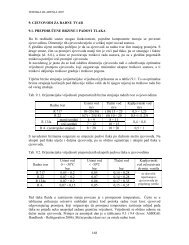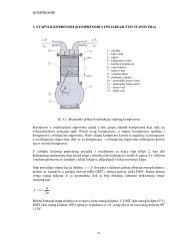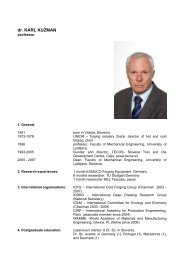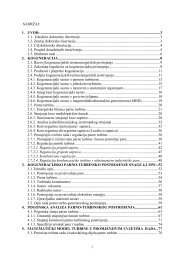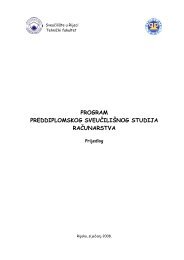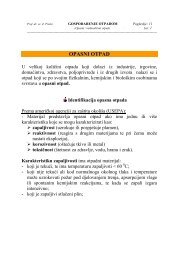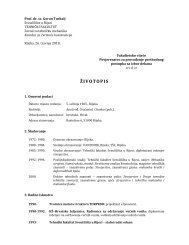universityâenterprise cooperation
universityâenterprise cooperation
universityâenterprise cooperation
Create successful ePaper yourself
Turn your PDF publications into a flip-book with our unique Google optimized e-Paper software.
Results of TSNA analysis in Serbia, WBC-VMnet project<br />
140<br />
120<br />
100<br />
65<br />
80<br />
60<br />
Manager<br />
Employed<br />
Unemployed<br />
40<br />
20<br />
0<br />
1 2 3 4 5 6 7 8 9 10 11 12 13 14 15 16<br />
LEGEND<br />
1. Specialized trainings related to the type of business<br />
of the firm<br />
2. Advanced CAD modeling<br />
3. CAM modeling and NC programming<br />
4. From design to virtual manufacturing to the users<br />
5. Design of tools for plastic<br />
6. Concurrent engineering<br />
7. Development and optimization of the production<br />
processes supported by virtual manufacturing<br />
8. Industrial design<br />
9. Bioengineering - applications<br />
10. Informative seminars about new trends<br />
11. Project design and management<br />
12. Business communication and negotiation<br />
13. Practical business marketing<br />
14. Learning foreign languages<br />
15. Introducing new quality certificates, and related trainings<br />
16. Others<br />
Full Reports of TSNA analysis in Serbia,<br />
Croatia, Montenegro and Bosnia and<br />
Herzegovina, are available in electronic<br />
form on www.wbc-vmnet.rs.<br />
Within the TEMPUS project “Higher<br />
Education Learning Partnerships–HELP”,<br />
144596-TEMPUS-2008-HU-JPHES,<br />
whose holder in Serbia is UNESCO Chair for<br />
Entrepreneurial Studies at the University of<br />
Novi Sad, and partners the Center for Strategic<br />
Economic research “Vojvodina-CESS” and<br />
Carlsberg company – Serbia, a research entitled<br />
‘’Assessing the needs of the economy for<br />
a workforce with specific skills’’ was conducted.<br />
Goals of the conducted research were<br />
to investigate whether the economy was<br />
satisfied with existing university personnel,<br />
that is their knowledge and skills, and to<br />
consider the needs of the economy for specific<br />
trainings and ways of their organization.<br />
The research was conducted on a sample of<br />
48 enterprises from Serbia, 45 from Croatia,<br />
50 from Hungary and 50 from Romania, from<br />
various sectors and sizes. Results showed that<br />
the practice and awareness of the organization<br />
of trainings in enterprises was relatively<br />
developed, but that the companies marked<br />
the practical and organizational skills of<br />
university staff rather low. On the other hand,<br />
these skills were also rated as most important<br />
for successful operation of enterprises, but<br />
also as most deficient. When answering the<br />
question why the enterprises did not organize<br />
training programs for their employees, 44%<br />
of the surveyed stated the lack of adequate<br />
training programs as the reason, and 37%<br />
the lack of funds. The survey also showed<br />
that the enterprise’s greatest difficulty was<br />
to find quality training programs to enhance<br />
the practical and the organizational skills of<br />
their employees.<br />
Current state in the WBC region 4







